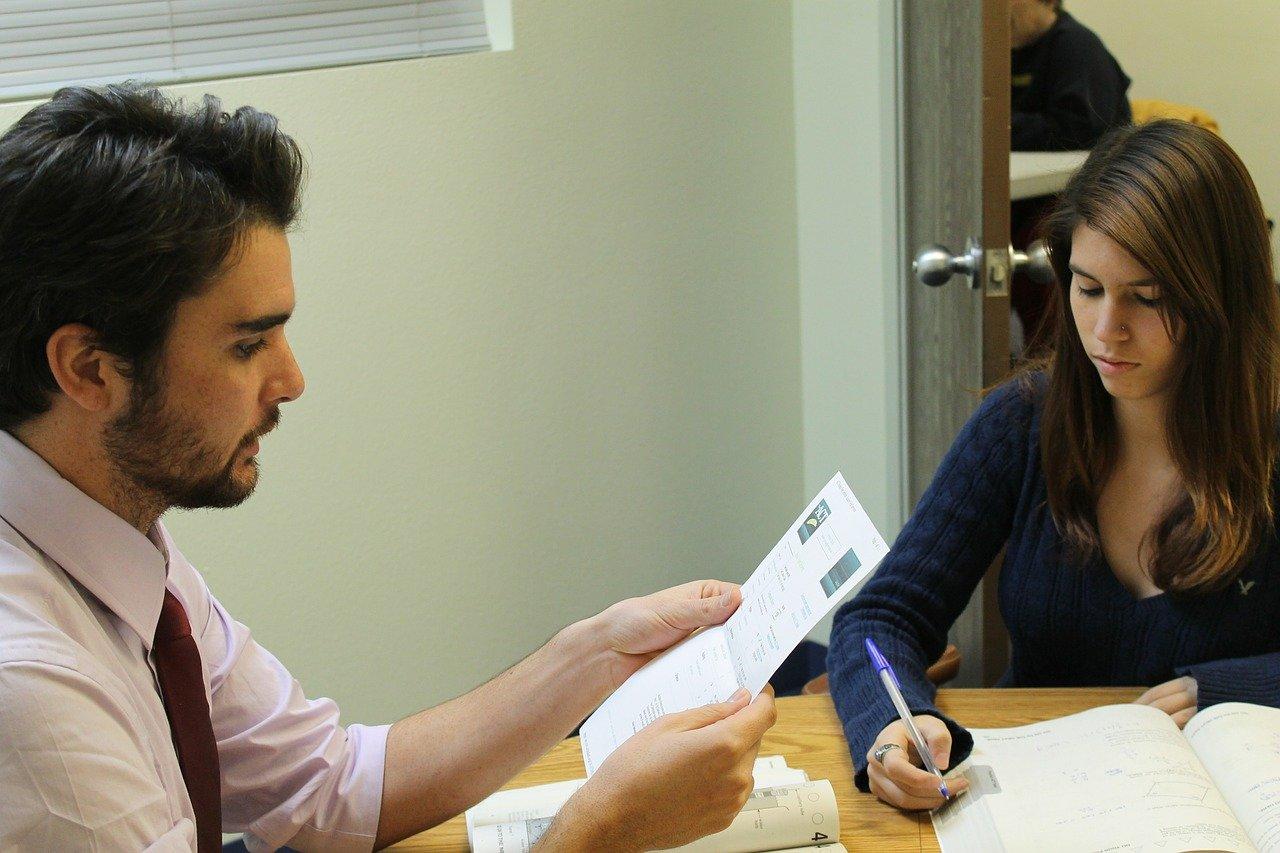Chapters
Sometimes it can be very difficult to predict the outcome of your exams, whether you're in primary or secondary school, or even enrolled in the university degree plan of your choice. This is probably because exams are one of students' most feared aspects of education.
Even if you're confident in your abilities to expound on your chosen subject(s), exams often subject students to predictable and unpredictable knowledge gaps - or should we say traps?, by posing questions designed to reflect on what you learned and see it from a different perspective.
Unfortunately, more often than not, such techniques confuse you rather than offer a chance to prove the depth of your knowledge.
If it has ever happened to you, you know that failing an exam can be a devastating experience, especially when you were not expecting to fail.
Your Superprof wants to have a frank discussion about why students fail exams, steps you can take to prevent scoring poorly and, should you not attain the marks you were aiming for, how to deal with the blow.

Why Students Fail Exams
You might wonder: are we going too deep into this topic? Isn't it obvious that students fail because of their poor study habits? That failure-to-learn hypothesis over-simplifies the answer to why students fail their exams.
Students generally fail exams because they lack opportunities to use what they've learned before being tested on it.

Let that assertion sink in for a moment before we pick it apart and give our reasons for saying it.
For years, teacher-centred instruction has been the educational standard: the teacher talks, the students listen and hopefully learn something. The curriculum is structured, meaning that Teacher only has so much time to cover a topic before moving on to the next one - whether students have completely grasped that topic or not.
The trouble with this model is that each phase or concept is built upon its predecessor, meaning that if a student doesn't quite get Topic ABC, s/he won't understand Topic DEF and, by the time the teacher has progressed to Topic MNO, the student who didn't understand the first topic will be completely lost.
Can you see how impactful it could be for students to not have time to assimilate the instruction they receive?
Rote learning is another traditional educational model; it relies on students memorising oft-repeated information. Multiplication tables and verb conjugation are good uses of rote learning; understanding the House of Tudor and narratives concerning the British Empire is not.
Rote learning is an excellent learning tool for retaining facts - to this day, I can recite multiplication tables effortlessly. However, it does not lend itself easily to opinion or discussion. That is why so many students have trouble with essay questions; they have little experience coaxing independent thoughts about the given prompts.
Therein lies the biggest flaw in standardised education: a dearth of opportunity for students to think.
For the longest time, educational philosophy was based on the idea that students were like empty vases, waiting to be filled with knowledge. Little thought or attention was given to cultivating thinking and reasoning skills - or to fostering an environment in which students were encouraged to explore acquired knowledge, meaning that any student with decent memory was a veritable fount of facts that s/he could do little with.
Today, there is a push for more evolved teaching methods: differentiated instruction and student-centred learning initiatives such as peer-tutoring and group-learning; schools are even embracing activities that cultivate critical thinking and problem-solving skills. For test-takers, that is all good news.
On the other hand, teaching to the test is ongoing. UK schools are reportedly among the worst worldwide for teaching only what will be on students' standardised exams, leaving no class time for creative or critical thinking activities.
With this, you can see that, if you don't pass your exam, the fault does not necessarily lie with your ability to study; rather, the problem is in how information is presented, processed and consolidated into your knowledge banks.
Search for tutors near me on Superprof.
What You Can Do to Avoid Failing Exams
Before you go all Pink Floyd - "we don't need no education!" over educational theory, let's take another look at what teachers are required to do and some of the new guidelines they have to work under.
Every school year - even this one, where students have been studying at home, teachers are held accountable for how well their students perform. If even a small percentage of their students don't move up to the next level each year, the teacher may suffer everything from a loss of a pay raise to being fired. They have strict guidelines for what they teach and how they have to do it.
A lot of that pressure comes from there being so many kids to teach, so much information to pass on and so little time to do it in. And how best can we ascertain that students truly understand what they've been taught? Presumably, through exam scores.
This perspective might help us be more charitable towards our teachers; at least, it shows that blaming them for high rates of exam failure misses the point - the causes of exam failure we described in the previous segment. You might feel bad knowing about what teachers endure but that too misses the point.
What you do about your education should be your primary concern.

- Many parents and students find that working with a tutor outside of class tends to result in higher marks in class and on exams.
That doesn't indicate that tutors are better instructors than teachers; it shows that taking the time to work with the material you learned in class, going far beyond your homework assignments, improves your ability to expound on that knowledge on your exams.
Superprof has tutors ready to work with you on any subject, from maths to art. There are also Superprofs for homework help and academic coaching - the ones you would want to work with to improve your overall academic performance.
Superprof also has an article to help you deal with stress during the wait for your exam results.
If you/your caregivers are not quite ready to commit to studying with a tutor, there are ways you can learn on your own to improve on everything, including your reading scores and writing a college essay paper.
- Earlier, we mentioned peer tutoring. A related concept, group study, would have the same effect as studying one on one with another student-tutor.
You should invite students with a mix of skills into your study group: someone who thinks outside the box, someone who remembers information well, someone who excels at making intuitive leaps and someone who always wants to tie everything together into neat little packages.
Building a group with students of diverse intellectual skills will give everyone in the group a new perspective on the information currently being discussed.
- How you organise your studies is another way to improve on the quality of your study time - a factor that many overlook but that contributes a lot toward success on exams.
Have you considered creating a mind map?
Such a map starts with the subject at the centre; let's go with biology - one of the science subjects you may test on.
One subset of your map would detail cell structure - membrane, cytoplasm, nucleus. Three further subsets would be the composition of the nucleus, of the cytoplasm, of the membrane and subsets of those could include their function, chemical composition, deterioration and so on.
By building mind maps for every subject you study, you are using what you learned in class to create a visual guide of needed information. Using newly-gained knowledge is the best way to cement it into your memory so that, come exam time, you will have less trouble recalling needed information.
If building mind maps seems over the top for you, you might instead create a colony of Post-It notes that detail the hierarchy of the subject at hand. Again going with biology: one sticky is the cell's nucleus, another is the cytoplasm and a third is the membrane.
Such a hierarchical structure is especially good when setting up a historical timeline, the periodic table of elements, or anything that has a specific order or chronology.
The bottom line is: no matter what deficiencies standardised education may have and/or the impossible standards teachers are expected to meet; no matter what is wrong with the way information is presented and why, whether and how you learn is up to you.
What if you are still waiting for your exam result? Here is an article that can help you.
What if You Fail an Exam Anyway?
Contrary to all popular narratives, there is no single recipe for success; achieving it relies on any number of factors - some out of your control.
Focusing on what you have control over - how you learn and how you display your knowledge through exams should lead you to a mindset that will leave you comfortable with your efforts, no matter the outcome.
As you cannot control certain aspects of the exam process, there is no need to fret over them, is there?
There is substantial guilt in not passing an exam; even if your peers, teachers and parents voice support and empathy, the hidden subtext is that you let everyone down, most of all yourself.
Adopting this theory sets you on a downward spiral: you failed your exams because you're a bad student, which means you're stupid and probably a bad person, which makes you wonder why anyone would want to be around you, which makes you wonder if... you can see how destructive this train of thought is, right?
If you don't score well enough on an exam, that is no reflection on you as a person or as a student. Instead of letting those hurtful thoughts take over, talk to people.
Talk to your family, talk to your friends, talk with your teacher and school counsellor. If needed, talk with a counsellor outside of school - there is absolutely no shame in that. Putting your feelings into perspective is job one after receiving such a blow to your confidence.
Once you've gotten those feelings under control, discuss your options. You may talk with your teacher if you think your score has been improperly tallied and, if your marks do reflect your efforts, you could ask if you can do extra assignments to boost your grade.
One thing you must remember is that failing your exams is not the end of the world.
Failure is one of the many hurdles you’ll have to overcome in life but each failure you encounter opens doors to further possibilities to learn, experience and grow. After all, I’m sure most of you have heard the saying ‘failure makes you stronger’.
Funnily enough, it does. Failing gives you an understanding of what it means to fail, to lose, to receive a negative outcome that you may not have expected. That is one of life's most important lessons.
A common worry amongst students who have failed some of their exams is that they’ll never get the job they wanted after graduating, or even the university degree they were first opting for. Wrong!
You should never let exam failure trick you into believing that you can’t achieve any of your dreams. Sure, some things will be harder to attain, but that doesn’t make them unreachable.
Failing exams doesn’t make you any less of a person, any less intelligent, or any less able to achieve what you want than those who may have gotten better results than you on their exams.

Personally Experiencing Failure
I found coping with failing my exams very hard. This was because I’d never failed an exam in my life, I was a straight A/A* student. The lowest grade I’d ever earned was the one B I’d got in my GCSEs.
Unfortunately, my parents and I made the wrong decision. They enrolled me in the International Baccalaureate programme in my school, where teachers were unable to teach at the Baccalaureate level - for whatever reason, and despite being the brightest/highest achievers in the entire school, everyone in my class failed.
Most of us got very low marks. We still passed the IB, but didn't get our first choice of university; some couldn't get into any university.
I’d never experienced failure before and, on top of failing, knowing that, if I had chosen to do A levels, I would have achieved at least straight As, my IB exam results had made it so that I didn’t get into any of the universities of my choice, even though I knew I was more than worthy/capable of attending them.
Not only that, but the fact that my parents and friends also expected me to get high marks, made me feel as though I had not only failed myself but my family and friends, too.
It felt horrible and shameful. Suddenly, everything I had known and my chosen path through life all crumbled before me, leaving me feeling helpless, hopeless and isolated. I spent two weeks crying non-stop, alone in my bedroom.
Luckily, my storm of weeping happened in a supportive, nurturing environment. Eventually, the tempest passed.
Once I got myself together, I sent hundreds of emails out to various universities, including my first choice (London School of Economics) and back-up choice (Edinburgh), explaining to them what had happened. Rejection again!
LSE decided that my grades were too far below their cut-off grade and rejected me. They were understanding about what happened though, absolving me of deeper feelings of worthlessness. How unfortunate that it was their policy to decline students who’d gotten 4 grades or more under their asking grade! Edinburgh also declined me.
Find out how to cope with exam stress!
What upset me the most was that I’d already gotten the halls of my choice at LSE, and they even had the ‘cheek’ to send me an email telling me so, even after they had rejected me. I felt like everyone and everything was mocking, nasty, and against me.
The worst thing was, I KNEW that if I’d have chosen to do A-Levels, I would’ve gotten at least A A A, and would’ve gotten into LSE easily. I was constrained and constricted by my low IB grades.
How did I combat my failure? I worked hard to get other universities to recognise my potential, without judging me through just my IB grades.
I sent emails and called up every university I could think of who had courses on offer that interested me. I bombarded them with samples of my written work, artwork, work experience, letters from my teachers, everything. My persistence and hard work paid off: many universities responded favourably, inviting me to enrol.
Doing your best in your exam is easier with this article.
The prestigious Durham University sent an invitation but nothing in their course list directly addressed the direction I wanted my life to take. Eventually, I found a course that would take me where I wanted to go and a university I thought I would get me there: Goldsmiths, University of London.
I went from failing my exams and believing I would never get a university place, to being accepted into a fantastic university (out of many who offered), meeting wonderful people, having an awesome freshers week, and generally enjoying university life.
The most important thing to remember in such a situation is to remain true to yourself; remember who you are, what your strengths are, what you are capable of doing, and what you want to do.
With that in mind, you only need to roll up your sleeves and get to work; soon, you will get there.
Preparing for an exam? Here is how to stay clear of procrastination.











Wow.. Amazing journey.
You Just gave me a reason not to change my math class just failed my first exam. Thank you